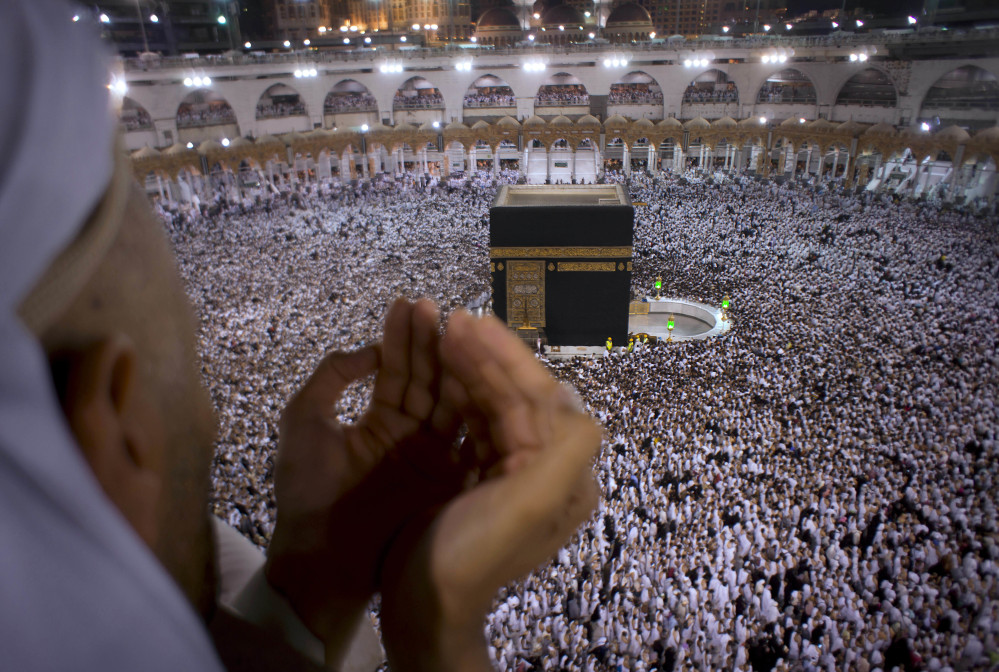NAPERVILLE, Ill. — Not one bite of food or sip of water from sunup to sundown. No alcohol. No sex. No tobacco.
The Muslim holy month of Ramadan, which began this year on May 26 and will end June 24, is hard. It’s supposed to be. It’s a time of sacrifice but also a time to focus on God and faith and family.
“We keep reminding people that we do not view Ramadan as a burden,” said Aadil Farid, former president of the Naperville Islamic Center. “We view Ramadan as an opportunity, as a platform, as a tool that enriches our mind, body and soul. It provides us an opportunity to stop and think and reflect. By refraining from food, it allows us to think that we are connected with the entirety of humanity through very basic needs.”
For healthy adults, fasting begins at sunrise, which was 5:24 a.m. on the first day of Ramadan and 5:19 a.m. on the last. Any meal must be consumed before that time. Then it’s no dinner until sunset at about 8:30 p.m. The only people excluded are the elderly, pregnant women, children and those who are ill, although all must still participate in daily prayers and reading from the Quran and can abstain from other things, such as watching television.
Ramadan is divided into three parts that each last 10 days. The final 10 days are considered the most blessed and the most important. “Within those last 10 days is when the first verses of the Quran were actually revealed,” Aadil Farid said.
The month of fasting and prayer is meant to be a time in which people re-assess their lives and improve their relationship with God and others, said Safa Farid, Aadil Farid’s 22-year-old daughter.
“When you’re not focusing on things meant to survive like eating, sleeping and drinking, then you’re more focused on the spiritual side of you,” Safa Farid said. “Then you can focus more on looking into the word of God and seeing what he said and working on your soul essentially.”
During Ramadan, many mosques and Islamic centers offer fast-breaking meals, called iftar, and prayer after sunset. Around 8 p.m. Thursday, people began trickling into the Islamic Center of Naperville in preparation of the end of that day’s fast.
Charity and generosity are particularly emphasized during Ramadan, so many volunteer to set up tables and serve food. “People compete to the extent that everybody wants to serve,” Aadil Farid said. “It is said this month that the reward of any good deed gets multiplied by 70 times normal.”
And for those who cannot fast, “anyone who assists in helping someone break their fast gets the reward that’s like the reward if they were fasting as well,” Safa Farid said.
The fast is traditionally broken with the consumption of dates, which the Prophet Mohammed consumed to break his own fast after God revealed the first verses of the Quran to him. Women eat and pray separate from the men, and the Islamic Center serves dinner to about 450 or 500 people each night.
Because the dates of Ramadan are set by the lunar calendar, the times of meals and prayers will change with the time of year. This year, dinner is served at about 8:45 p.m., and people eat and socialize until about 10 p.m. The food is catered and the menu changes every day.
The last prayer of the day begins about 10:20 p.m. Women pack various rooms in the mosque—those with children under the age of 10 and those who need to sit in chairs while they pray—have their own rooms. Some people leave after the first set of prayers, which this week ended at about 11:15 p.m. Others continue praying until after midnight.
Attendance for the nightly prayers in the first week of Ramadan drew nearly 1,500 people each night, Aadil Farid said. In the last few nights, close to 2,000 people are expected to attend.
Although the message is reinforced that the holy month is a time for self-evaluation, self-improvement and rededication to the faith, many will experience the “Ramadan slump” in the middle of the month, Safa Farid said.
The beginning of Ramadan draws excitement and a sense of community as people get to see their friends and family every day for the nightly prayers that are specific to Ramadan, Farid said.
“After the first week or week-and-a-half, the fatigue kind of starts to kick in from your lack of energy and your lack of sleep,” Farid said. But things kick into high gear at the end, Farid and her father agreed.
Copy the Story LinkSend questions/comments to the editors.



Success. Please wait for the page to reload. If the page does not reload within 5 seconds, please refresh the page.
Enter your email and password to access comments.
Hi, to comment on stories you must . This profile is in addition to your subscription and website login.
Already have a commenting profile? .
Invalid username/password.
Please check your email to confirm and complete your registration.
Only subscribers are eligible to post comments. Please subscribe or login first for digital access. Here’s why.
Use the form below to reset your password. When you've submitted your account email, we will send an email with a reset code.